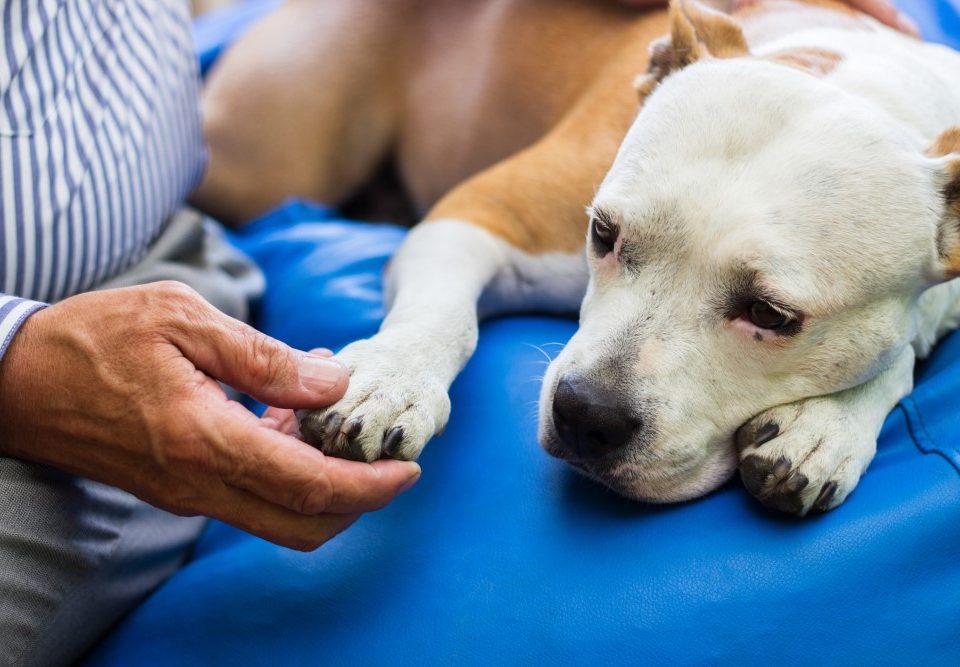
Signs To Put Your Dog To Sleep And What Happens During Pet Euthanasia?
June 3, 2021
Dog Brain Tumor When To Euthanize
July 1, 2021
What is Chronic Kidney Disease in Dogs?
Sometimes referred to as chronic renal failure, chronic kidney disease leads to your dog progressively and gradually losing the use of its kidneys. This condition results in your dog being unable to filter out toxins and waste from its blood. Your dog will still be able to urinate without removing the waste that the urine should remove. Ironically, increased urination is one of the signs of kidney problems in your dog.
What should I look out for to detect kidney disease in my dog?
Kidney disease causes the organ to become less effective at filtering toxins and waste from your dog’s blood. To offset this inefficiency, your dog will produce more urine to try to increase the filtration. Increased urination is one sign, as are the increased thirst and water consumption needed to sustain the increase in your dog’s urination.
As the disease progresses and becomes more advanced, symptoms to look out for include the following:
- Bad breath (worse than average)
- Depression
- Diarrhea
- Loss of appetite
- Mouth ulcers
- Vomiting
- Weight loss
How does my dog’s age contribute to chronic kidney disease?
Aging is the cause of the most common form of kidney disease in dogs. Unfortunately, it comes about naturally due to the organ wearing out over time. The likely onset of kidney disease in dogs generally depends on the dog’s size. Smaller breeds may not see the early symptoms until they have reached ten to fourteen years. Larger breeds, however, can experience failure of the kidneys from around seven years.
How can I get a diagnosis of chronic kidney disease in my dog?
Your vet will be able to give your dog a diagnosis of kidney disease by checking the levels of two waste products in your dog’s blood. These products are blood creatinine and blood urea nitrogen (BUN). Your vet will also need to conduct a urinalysis to give a complete assessment of your dog’s kidneys.
Can I get my dog’s kidney disease treated?
As mentioned earlier, your dog’s age can mean that the kidney is too worn-out for treatment to be effective. However, your dog may be able to live months or years if it undergoes an aggressive two-phase treatment programme.
What happens during the first phase of treatment?
The first phase in treating canine kidney disease is to flush the kidneys out with fluids to clean them and give them a chance to restart their cleaning function. The fluid used to flush your dog’s kidneys out include vital minerals and electrolytes. Your dog will need to take drugs to stem vomiting and diarrhea and stick to a special diet to aid nutrition. There are three likely outcomes from the first phase of dog kidney disease:
- Resumption of function for up to anything from two weeks to two years.
- Temporary resumption of function during treatment, but kidneys fail when treatment stops.
- Treatment fails.
Even if your dog responds well to treatment, they will need to undergo essential home treatment, including:
- Fluid treatment
- Strict diet
- Series of drug treatments for the following:
- Calcium levels
- Parathyroid gland support
- Stomach acid reduction
- Bone marrow stimulation
- Blood pressure control
- Potassium supplement
- Phosphate binder
- Acupuncture
What is my dog’s life expectancy with this treatment?
It is impossible to predict how an individual dog will react to treatment, so you cannot estimate how long they will survive. It is certain, though, that the treatment is prolonged and arduous for both the dog and owner. You may feel that you do not want to put your pet through such a process and that putting your dog to sleep is the least-bad option. You’ll receive all the help and support you need during this traumatic time from highly trained, fully qualified, and caring professionals.



